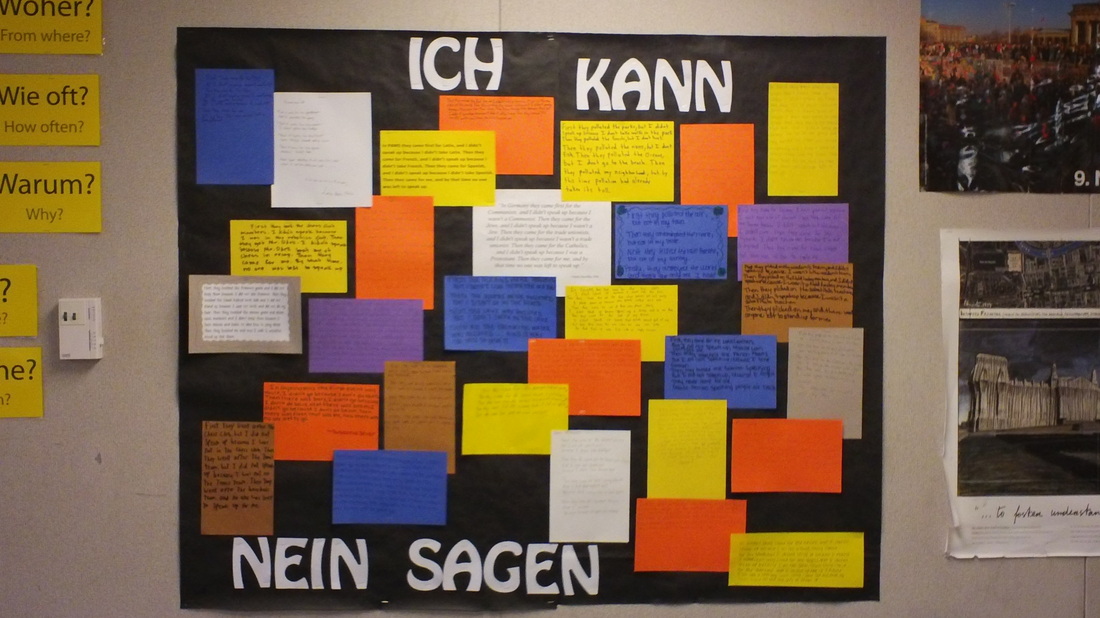|
As we moved away from our mini-unit on Sophie Scholl and resistance during World War II, we are now trying to answer the question in class: What is intolerance? What does it feel/ look like? And how can I express what I know about intolerance in German. To lead from the topic of the Holocaust to a unit concerned with intolerance in school, we read and analyzed a very powerful quote by Martin Niemöller about personal responsibility: “First they came for the socialists and I didn't speak out—because I wasn't a socialist. Then they came for the trade unionists, and I didn't speak out—because I wasn't a trade unionist. Then they came for the Jews, and I didn't speak out—because I was not a Jew. Then they came for me—and there was no one left to speak for me." The students' objective was to rewrite the quote to match their own lives. Here are some of the students' quotes: "First it came for my grandmom, and I was still too young. Then it came for my neighbor, I never got to say goodbye. Then it came for my friend, some things should not be seen. Then it came for my gerbil. another friend lost. And soon one day it will come for me, when I am the only one left." Anne First the oceans were polluted, but I don't live near the ocean. Then the rivers were polluted, but I didn't go in the river. Next the lake was polluted but I don't swim in the lakes. Then all the drinking water was polluted... and it was too late to save it. Julie In our new unit we are following a boy from Southern Germany, who moved to the Hamburg in the North, where he gets bullied because he is different.
1 Comment
|
Archives
June 2016
Categories
All
|

 RSS Feed
RSS Feed
